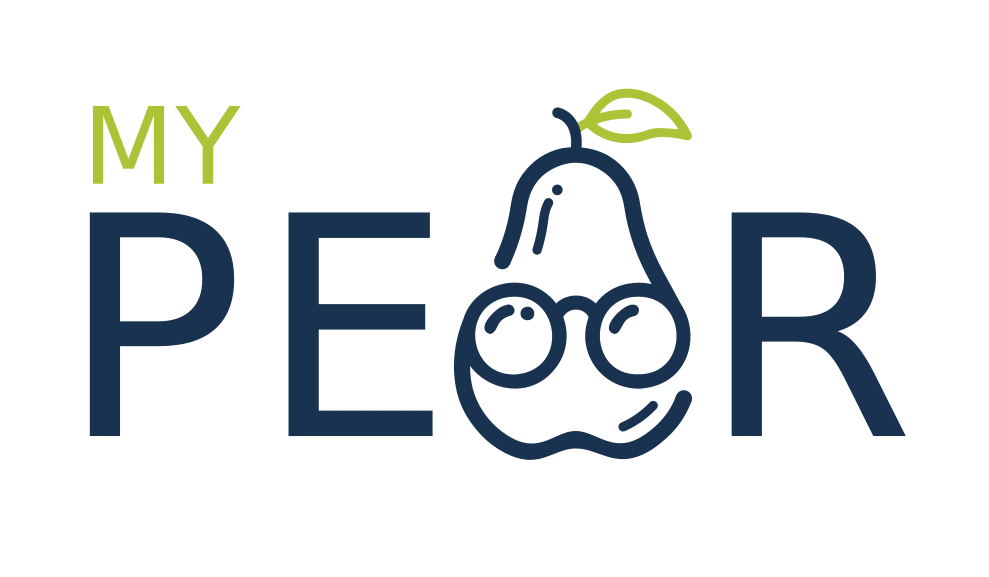Laryngopharyngeal reflux (LPR) is a condition that occurs when stomach acid backs up into the larynx and pharynx, leading to various symptoms such as chronic cough, hoarseness, throat clearing, and sore throat. It can cause discomfort and affect the quality of life of those who suffer from it. The duration of LPR can vary from person to person, and there is no fixed timeline for the condition. How long LPR takes to heal depends on several factors, including the severity of the symptoms, the underlying causes, and the effectiveness of the treatments.
While some people with LPR may experience relief of symptoms within a few weeks of treatment, others may require several months or even longer to recover. LPR can be treated using a combination of lifestyle changes, such as avoiding trigger foods and eating smaller, more frequent meals, and medications such as proton pump inhibitors (PPIs), H2 blockers, or prokinetic agents to alleviate acid reflux symptoms.
In addition to these treatments, certain home remedies such as elevating the head of the bed, not eating before bedtime, and quitting smoking can also help improve LPR symptoms. Moreover, some patients may benefit from voice therapy or surgery if the underlying causes of LPR are anatomical issues or damage to the vocal cords.
In conclusion, there is no definitive answer to how long it takes LPR to heal, as it varies from person to person. It is crucial to work closely with a healthcare professional to tailor an individualized treatment plan that addresses the underlying causes and symptoms of LPR for optimal recovery.
How Long Does LPR Take To Heal?
Laryngopharyngeal reflux (LPR) is a type of acid reflux that affects the larynx and pharynx. The length of time it takes for LPR to heal varies from person to person. It depends on the severity of the condition, how long the person has had LPR, and what treatment options they have chosen.
In general, LPR can take several months to a few years to heal fully. The healing process may take longer if the person has developed complications, such as vocal cord nodules or chronic inflammation of the throat.
How To Cure LPR Naturally?
There are several ways to treat LPR without medication. Some of these natural remedies include:
1. Diet modifications: Avoiding spicy, acidic, and fatty foods can help reduce the amount of acid refluxed into the larynx and pharynx.
2. Lifestyle changes: Elevating the head of the bed by six to eight inches while sleeping, avoiding eating two to three hours before bedtime, and quitting smoking may also help reduce symptoms.
3. Ginger: Ginger has been known to settle the stomach and may help reduce the frequency of acid reflux.
4. Apple Cider Vinegar: A tablespoon of apple cider vinegar diluted with water before meals can help reduce acid reflux.
5. Aloe Vera juice: Drinking aloe vera juice before eating or at bedtime can also help reduce symptoms of acid reflux.
It’s important to note that while these natural remedies may help reduce symptoms, they should not be used as a substitute for medical treatment. Consult a healthcare professional before trying any natural remedies.
How To Get Rid Of LPR Sore Throat?
Many people with LPR experience a sore throat as one of their primary symptoms. To get rid of an LPR sore throat, you can try the following:
1. Gargle with warm salt water: Gargling with warm salt water can help reduce inflammation and kill bacteria in the throat.
2. Honey: Honey has antibacterial properties and can soothe an irritated throat.
3. Throat lozenges: Throat lozenges can help coat the throat and provide temporary relief.
4. Drink plenty of fluids: Staying hydrated can help keep the throat moist and soothe irritation.
5. Voice rest: Giving the vocal cords a rest by avoiding talking or whispering can also help reduce symptoms.
If these home remedies do not provide relief, medication or medical intervention may be necessary.
How To Stop LPR Cough?
LPR can cause a chronic cough that is often unresponsive to traditional cough treatments. To stop an LPR cough, you can try the following:
1. Diet modifications: Avoiding spicy, acidic, and fatty foods can help reduce the amount of acid refluxed into the larynx and pharynx.
2. Lifestyle changes: Elevating the head of the bed by six to eight inches while sleeping, avoiding eating two to three hours before bedtime, and quitting smoking may also help reduce symptoms.
3. Throat lozenges: Throat lozenges can help coat the throat and provide temporary relief.
4. Medication: Over-the-counter antacids, H2 blockers or proton pump inhibitors can help reduce acid reflux symptoms.
5. Speech therapy: Voice therapy with a trained speech therapist can help improve vocal hygiene and reduce irritation to the larynx.
If your cough persists, it’s essential to see a healthcare professional for further evaluation and treatment.
How Long Does It Take For LPR To Go Away?
LPR can take several months to a few years to go away entirely. The healing time varies from person to person, depending on the severity of the condition, the length of time the person has had LPR, and what treatment options they have chosen.
It’s important to note that while LPR can go away, it may return if the underlying cause is not addressed. Therefore, it’s essential to seek medical treatment and make the necessary lifestyle modifications to prevent LPR from returning.
What Foods To Avoid With LPR?
LPR symptoms are often triggered by specific foods, and avoiding these foods can help reduce symptoms. Some foods to avoid with LPR include:
1. Spicy foods: Spices can irritate the pharynx and larynx and cause acid reflux symptoms.
2. Acidic foods: Acidic foods, such as citrus fruits and tomatoes, can also trigger acid reflux symptoms.
3. Fatty foods: Fatty foods can relax the lower esophageal sphincter, which can allow acid to reflux into the larynx and pharynx.
4. Caffeine: Caffeine can irritate the stomach lining and increase acid production, leading to acid reflux symptoms.
5. Carbonated beverages: Carbonated beverages can increase stomach pressure and cause acid reflux to occur.
6. Alcohol: Alcohol can relax the lower esophageal sphincter, leading to acid reflux symptoms.
LPR Treatment Over The Counter?
Over-the-counter (OTC) medications can be used to treat LPR symptoms. Some OTC options include:
1. Antacids: Antacids can help neutralize stomach acid and reduce symptoms.
2. H2 blockers: H2 blockers can reduce the production of stomach acid, reducing the amount of acid refluxed into the larynx and pharynx.
3. Proton pump inhibitors: Proton pump inhibitors can decrease the production of stomach acid and provide longer-lasting relief than antacids or H2 blockers.
It’s important to note that OTC medication should not be used as a substitute for medical treatment. If symptoms persist or worsen, it’s essential to seek medical attention.
LPR Diet Plan?
A balanced LPR diet plan involves avoiding foods that trigger LPR symptoms and incorporating foods that help reduce acid reflux. Here are some dietary guidelines to follow:
1. Avoid spicy, acidic, and fatty foods.
2. Eat smaller, more frequent meals to reduce pressure on the lower esophageal sphincter.
3. Incorporate lean proteins, such as chicken and fish.
4. Consume moderate amounts of whole grains, fruits, and vegetables.
5. Drink plenty of water and avoid carbonated and caffeinated beverages.
6. Practice mindful eating by chewing food thoroughly and eating slowly.
LPR Vs GERD?

LPR and gastroesophageal reflux disease (GERD) are two types of acid reflux. The primary difference between the two is the location of the acid reflux. GERD affects the lower esophagus, while LPR affects the larynx and pharynx.
Symptoms of GERD typically include heartburn, regurgitation, and an acidic taste in the mouth. LPR symptoms, on the other hand, include hoarseness, chronic cough, and a lump in the throat.
Treatment for both conditions may involve lifestyle modifications, medication, or medical interventions such as surgery. A healthcare professional can diagnose between the two conditions.
What Causes LPR?
LPR is caused by the backflow of stomach contents into the larynx and pharynx. The backflow occurs when the lower esophageal sphincter relaxes, allowing stomach acid to reflux into the throat.
Several factors can contribute to LPR, including:
1. Hiatal hernia: A hiatal hernia occurs when part of the stomach pushes through the diaphragm and into the chest cavity, putting pressure on the lower esophageal sphincter.
2. Obesity: Excess weight can put pressure on the stomach and increase the likelihood of acid reflux.
3. Smoking: Smoking can weaken the lower esophageal sphincter and increase acid reflux.
4. Pregnancy: The pressure of the growing fetus can push the stomach upward, putting pressure on the lower esophageal sphincter.
5. Diet: Spicy, acidic, and fatty foods can increase the likelihood of acid reflux.
6. Medications: Certain medications, such as calcium channel blockers and benzodiazepines, can increase acid reflux symptoms.
Can LPR Be Cured?
LPR can be managed with medical treatment and lifestyle modifications. There is currently no cure for LPR, but symptoms can be reduced and managed with proper treatment.
If left untreated, LPR can lead to complications such as vocal cord nodules, chronic inflammation of the throat, and sleep disturbances.
How To Treat LPR Without Medication?
LPR can be treated without medication by making lifestyle modifications to reduce symptoms. Some ways to treat LPR without medication include:
1. Diet modifications: Avoiding spicy, acidic, and fatty foods can help reduce the amount of acid refluxed into the larynx and pharynx.
2. Lifestyle changes: Elevating the head of the bed by six to eight inches while sleeping, avoiding eating two to three hours before bedtime, and quitting smoking may also help reduce symptoms.
3. Speech therapy: Voice therapy with a trained speech therapist can help improve vocal hygiene and reduce irritation to the larynx.
4. Weight loss: Losing weight can reduce pressure on the stomach and lower esophageal sphincter, reducing the likelihood of acid reflux.
It’s essential to consult a healthcare professional before trying any treatments to manage or treat LPR.
How To Get Diagnosed With LPR?
LPR is diagnosed by a healthcare professional through a combination of patient history, physical examination, and tests. Tests may include a laryngoscopy, pH monitoring, or a barium swallow study.
During a laryngoscopy, a thin, flexible tube with a camera is inserted through the nose to examine the larynx and pharynx for signs of irritation or inflammation.
pH monitoring involves placing a small device in the esophagus to measure the amount of acid reflux over 24 to 48 hours.
A barium swallow study involves drinking a liquid barium solution to visualize the upper gastrointestinal tract using X-rays.
If you suspect you have LPR or are experiencing symptoms, it’s essential to seek medical attention for proper diagnosis and treatment.
What Does LPR Feel Like?
LPR symptoms are often different from those of GERD and may include:
1. Chronic cough
2. Hoarseness or a raspy voice
3. A lump in the throat sensation
4. Difficulty swallowing
5. Postnasal drip
6. Excessive throat clearing
7. Sore throat
8. Bad breath
9. Chest pain
10. Ear pain or ear infections

LPR symptoms may occur intermittently or persistently, and the severity of symptoms can vary from person to person. If you experience any of these symptoms, it’s essential to seek medical attention for proper diagnosis and treatment.
Conclusion
Laryngopharyngeal reflux (LPR) is a condition wherein acid reflux reaches the voice box and throat, causing symptoms such as hoarseness, persistent cough, sore throat, and throat clearing. LPR can have debilitating effects and may take time to heal. However, proper diagnosis and management can positively impact recovery time.

There is no specific timeline for LPR healing as it may vary from person to person. In general, with appropriate medical treatment, lifestyle modifications, and dietary changes, most people with LPR start to feel better within a few weeks. It may take longer for people with severe LPR symptoms or those who do not consistently follow treatment guidelines.
LPR healing time may also depend on the extent of tissue damage to the throat caused by chronic exposure to acid. The key to managing LPR is early detection and initiating effective treatment as soon as possible to avoid complications.
In conclusion, while there is no definite time frame for LPR healing, proper diagnosis and management can improve recovery time. People with LPR should work closely with their healthcare providers to develop an individualized treatment plan that includes medication, lifestyle adjustments, and dietary changes. It is essential to be patient, consistent, and committed to the treatment plan to achieve the best results.
In general, LPR can take several months to a few years to heal fully. The healing process may take longer if the person has developed complications, such as vocal cord nodules or chronic inflammation of the throat.
"}},{"@type": "Question", "name": "How To Cure LPR Naturally?","acceptedAnswer": {"@type": "Answer","text": "There are several ways to treat LPR without medication. Some of these natural remedies include:
1. Diet modifications: Avoiding spicy, acidic, and fatty foods can help reduce the amount of acid refluxed into the larynx and pharynx.
2. Lifestyle changes: Elevating the head of the bed by six to eight inches while sleeping, avoiding eating two to three hours before bedtime, and quitting smoking may also help reduce symptoms.
3. Ginger: Ginger has been known to settle the stomach and may help reduce the frequency of acid reflux.
4. Apple Cider Vinegar: A tablespoon of apple cider vinegar diluted with water before meals can help reduce acid reflux.
5. Aloe Vera juice: Drinking aloe vera juice before eating or at bedtime can also help reduce symptoms of acid reflux.
It's important to note that while these natural remedies may help reduce symptoms, they should not be used as a substitute for medical treatment. Consult a healthcare professional before trying any natural remedies.
"}},{"@type": "Question", "name": "How To Get Rid Of LPR Sore Throat?","acceptedAnswer": {"@type": "Answer","text": "Many people with LPR experience a sore throat as one of their primary symptoms. To get rid of an LPR sore throat, you can try the following:
1. Gargle with warm salt water: Gargling with warm salt water can help reduce inflammation and kill bacteria in the throat.
2. Honey: Honey has antibacterial properties and can soothe an irritated throat.
3. Throat lozenges: Throat lozenges can help coat the throat and provide temporary relief.
4. Drink plenty of fluids: Staying hydrated can help keep the throat moist and soothe irritation.
5. Voice rest: Giving the vocal cords a rest by avoiding talking or whispering can also help reduce symptoms.
If these home remedies do not provide relief, medication or medical intervention may be necessary.
"}},{"@type": "Question", "name": "How To Stop LPR Cough?","acceptedAnswer": {"@type": "Answer","text": "LPR can cause a chronic cough that is often unresponsive to traditional cough treatments. To stop an LPR cough, you can try the following:
1. Diet modifications: Avoiding spicy, acidic, and fatty foods can help reduce the amount of acid refluxed into the larynx and pharynx.
2. Lifestyle changes: Elevating the head of the bed by six to eight inches while sleeping, avoiding eating two to three hours before bedtime, and quitting smoking may also help reduce symptoms.
3. Throat lozenges: Throat lozenges can help coat the throat and provide temporary relief.
4. Medication: Over-the-counter antacids, H2 blockers or proton pump inhibitors can help reduce acid reflux symptoms.
5. Speech therapy: Voice therapy with a trained speech therapist can help improve vocal hygiene and reduce irritation to the larynx.
If your cough persists, it's essential to see a healthcare professional for further evaluation and treatment.
"}},{"@type": "Question", "name": "How Long Does It Take For LPR To Go Away?","acceptedAnswer": {"@type": "Answer","text": "LPR can take several months to a few years to go away entirely. The healing time varies from person to person, depending on the severity of the condition, the length of time the person has had LPR, and what treatment options they have chosen.
It's important to note that while LPR can go away, it may return if the underlying cause is not addressed. Therefore, it's essential to seek medical treatment and make the necessary lifestyle modifications to prevent LPR from returning.
"}},{"@type": "Question", "name": "What Foods To Avoid With LPR?","acceptedAnswer": {"@type": "Answer","text": "LPR symptoms are often triggered by specific foods, and avoiding these foods can help reduce symptoms. Some foods to avoid with LPR include:
1. Spicy foods: Spices can irritate the pharynx and larynx and cause acid reflux symptoms.
2. Acidic foods: Acidic foods, such as citrus fruits and tomatoes, can also trigger acid reflux symptoms.
3. Fatty foods: Fatty foods can relax the lower esophageal sphincter, which can allow acid to reflux into the larynx and pharynx.
4. Caffeine: Caffeine can irritate the stomach lining and increase acid production, leading to acid reflux symptoms.
5. Carbonated beverages: Carbonated beverages can increase stomach pressure and cause acid reflux to occur.
6. Alcohol: Alcohol can relax the lower esophageal sphincter, leading to acid reflux symptoms.
"}},{"@type": "Question", "name": "LPR Treatment Over The Counter?","acceptedAnswer": {"@type": "Answer","text": "Over-the-counter (OTC) medications can be used to treat LPR symptoms. Some OTC options include:
1. Antacids: Antacids can help neutralize stomach acid and reduce symptoms.
2. H2 blockers: H2 blockers can reduce the production of stomach acid, reducing the amount of acid refluxed into the larynx and pharynx.
3. Proton pump inhibitors: Proton pump inhibitors can decrease the production of stomach acid and provide longer-lasting relief than antacids or H2 blockers.
It's important to note that OTC medication should not be used as a substitute for medical treatment. If symptoms persist or worsen, it's essential to seek medical attention.
"}},{"@type": "Question", "name": "LPR Diet Plan?","acceptedAnswer": {"@type": "Answer","text": "A balanced LPR diet plan involves avoiding foods that trigger LPR symptoms and incorporating foods that help reduce acid reflux. Here are some dietary guidelines to follow:
1. Avoid spicy, acidic, and fatty foods.
2. Eat smaller, more frequent meals to reduce pressure on the lower esophageal sphincter.
3. Incorporate lean proteins, such as chicken and fish.
4. Consume moderate amounts of whole grains, fruits, and vegetables.
5. Drink plenty of water and avoid carbonated and caffeinated beverages.
6. Practice mindful eating by chewing food thoroughly and eating slowly.
"}},{"@type": "Question", "name": "LPR Vs GERD?","acceptedAnswer": {"@type": "Answer","text": "
LPR and gastroesophageal reflux disease (GERD) are two types of acid reflux. The primary difference between the two is the location of the acid reflux. GERD affects the lower esophagus, while LPR affects the larynx and pharynx.
Symptoms of GERD typically include heartburn, regurgitation, and an acidic taste in the mouth. LPR symptoms, on the other hand, include hoarseness, chronic cough, and a lump in the throat.
Treatment for both conditions may involve lifestyle modifications, medication, or medical interventions such as surgery. A healthcare professional can diagnose between the two conditions.
"}},{"@type": "Question", "name": "What Causes LPR?","acceptedAnswer": {"@type": "Answer","text": "LPR is caused by the backflow of stomach contents into the larynx and pharynx. The backflow occurs when the lower esophageal sphincter relaxes, allowing stomach acid to reflux into the throat.
Several factors can contribute to LPR, including:
1. Hiatal hernia: A hiatal hernia occurs when part of the stomach pushes through the diaphragm and into the chest cavity, putting pressure on the lower esophageal sphincter.
2. Obesity: Excess weight can put pressure on the stomach and increase the likelihood of acid reflux.
3. Smoking: Smoking can weaken the lower esophageal sphincter and increase acid reflux.
4. Pregnancy: The pressure of the growing fetus can push the stomach upward, putting pressure on the lower esophageal sphincter.
5. Diet: Spicy, acidic, and fatty foods can increase the likelihood of acid reflux.
6. Medications: Certain medications, such as calcium channel blockers and benzodiazepines, can increase acid reflux symptoms.
"}},{"@type": "Question", "name": "Can LPR Be Cured?","acceptedAnswer": {"@type": "Answer","text": "LPR can be managed with medical treatment and lifestyle modifications. There is currently no cure for LPR, but symptoms can be reduced and managed with proper treatment.
If left untreated, LPR can lead to complications such as vocal cord nodules, chronic inflammation of the throat, and sleep disturbances.
"}},{"@type": "Question", "name": "How To Treat LPR Without Medication?","acceptedAnswer": {"@type": "Answer","text": "LPR can be treated without medication by making lifestyle modifications to reduce symptoms. Some ways to treat LPR without medication include:
1. Diet modifications: Avoiding spicy, acidic, and fatty foods can help reduce the amount of acid refluxed into the larynx and pharynx.
2. Lifestyle changes: Elevating the head of the bed by six to eight inches while sleeping, avoiding eating two to three hours before bedtime, and quitting smoking may also help reduce symptoms.
3. Speech therapy: Voice therapy with a trained speech therapist can help improve vocal hygiene and reduce irritation to the larynx.
4. Weight loss: Losing weight can reduce pressure on the stomach and lower esophageal sphincter, reducing the likelihood of acid reflux.
It's essential to consult a healthcare professional before trying any treatments to manage or treat LPR.
"}},{"@type": "Question", "name": "How To Get Diagnosed With LPR?","acceptedAnswer": {"@type": "Answer","text": "LPR is diagnosed by a healthcare professional through a combination of patient history, physical examination, and tests. Tests may include a laryngoscopy, pH monitoring, or a barium swallow study.
During a laryngoscopy, a thin, flexible tube with a camera is inserted through the nose to examine the larynx and pharynx for signs of irritation or inflammation.
pH monitoring involves placing a small device in the esophagus to measure the amount of acid reflux over 24 to 48 hours.
A barium swallow study involves drinking a liquid barium solution to visualize the upper gastrointestinal tract using X-rays.
If you suspect you have LPR or are experiencing symptoms, it's essential to seek medical attention for proper diagnosis and treatment.
"}},{"@type": "Question", "name": "What Does LPR Feel Like?","acceptedAnswer": {"@type": "Answer","text": "LPR symptoms are often different from those of GERD and may include:
1. Chronic cough
2. Hoarseness or a raspy voice
3. A lump in the throat sensation
4. Difficulty swallowing
5. Postnasal drip
6. Excessive throat clearing
7. Sore throat
8. Bad breath
9. Chest pain
10. Ear pain or ear infections
LPR symptoms may occur intermittently or persistently, and the severity of symptoms can vary from person to person. If you experience any of these symptoms, it's essential to seek medical attention for proper diagnosis and treatment.
"}},{"@type": "Question", "name": "Conclusion","acceptedAnswer": {"@type": "Answer","text": "Laryngopharyngeal reflux (LPR) is a condition wherein acid reflux reaches the voice box and throat, causing symptoms such as hoarseness, persistent cough, sore throat, and throat clearing. LPR can have debilitating effects and may take time to heal. However, proper diagnosis and management can positively impact recovery time.
There is no specific timeline for LPR healing as it may vary from person to person. In general, with appropriate medical treatment, lifestyle modifications, and dietary changes, most people with LPR start to feel better within a few weeks. It may take longer for people with severe LPR symptoms or those who do not consistently follow treatment guidelines.
LPR healing time may also depend on the extent of tissue damage to the throat caused by chronic exposure to acid. The key to managing LPR is early detection and initiating effective treatment as soon as possible to avoid complications.
In conclusion, while there is no definite time frame for LPR healing, proper diagnosis and management can improve recovery time. People with LPR should work closely with their healthcare providers to develop an individualized treatment plan that includes medication, lifestyle adjustments, and dietary changes. It is essential to be patient, consistent, and committed to the treatment plan to achieve the best results. "}}]}



